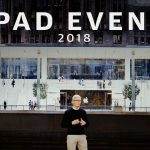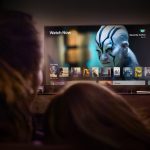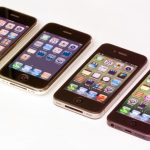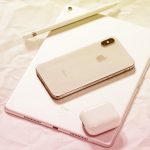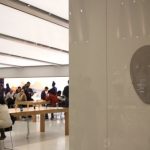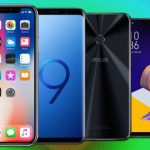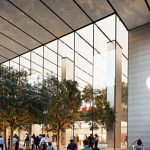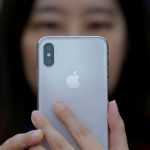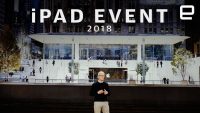DOJ Says Apple’s Motives In IPhone Encryption Case Are About Branding, Not Privacy
The Department of Justice has filed a legal motion backing the FBI in its iPhone encryption dispute with Apple. The motion urges that Apple comply with an FBI-won court order and help unlock the iPhone of the deceased San Bernardino terrorist Syed Farook.
DOJ attorneys pull no punches in the motion, suggesting that Apple’s motivations are more about its business model than any concern for user privacy.
“Based on Apple’s recent public statement and other statements by Apple, Apple’s current refusal to comply with the Court’s Order, despite the technical feasibility of doing so, instead appears to be based on its concern for its business model and public brand marketing strategy,” the DOJ attorneys write in the motion.
The “public statement” is the open letter Apple CEO Tim Cook wrote defiance of the court order.
A federal court in the Central District of California on Tuesday issued an order compelling Apple to, among other things, create a new firmware that would allow investigators to hack into the phone.
The phone was recovered from Farook’s vehicle after he and his wife Tashfeen Malik died in a gun battle with authorities December 2. This came after Farook took part in an attack on a San Bernardino government facility that left 14 dead and 22 injured.
The motion points out that the phone was not owned by Farook, but rather by his employer, the San Bernardino County Department of Public Health, a government entity. The employer had given the FBI permission to access the data on the phone, according to the DOJ.
“Rather than assist the effort to fully investigate a deadly terrorist attack by obeying this Court’s Order of February 16, 2016, Apple has responded by publicly repudiating that order,” the DOJ writes in the motion. “Apple has attempted to design and market its product to allow technology, rather than the law, to control access to data which has been found by this Court to be warranted for an important investigation.”
The DOJ disregards the privacy concerns raised in Cook’s open letter, which is being used as Apple’s official legal position, rather than a legal filing from Apple attorneys.
“Apple appears to object based on a combination of a perceived negative impact on its reputation and marketing strategy were it to provide the order assistance to the government, numerous mischaracterizations of the requirements of the Order, and an incorrect understanding of the All Writs Act.”
The All Writs Act is a 200-plus year-old law that gives judges a “residual source of authority to issue writs that are not otherwise covered by statute,” as the Supreme Court put it.
Apple said Thursday it would file a document saying that complying with the FBI’s requests would be “unreasonably burdensome.” This was the only means of recourse described in the court order.
The DOJ argues, preemptively, against such a claim in today’s motion.
“While the Order in this case requires Apple to provide or employ modified software, modifying an operating system — which is essentially writing software code in discrete and limited manner—is not an unreasonable burden for a company that writes software code as part of its regular business,” DOJ lawyers write. “The simple fact of having to create code that may not now exist in the exact form required does not an undue burden make.”
Responding to Tim Cook’s suggestion that building a custom-built piece of firmware for Farook’s iPhone would endanger the privacy of all iPhone users, the DOJ attorneys wrote:
“Apple is not above the law . . . and it is perfectly capable of advising consumers that compliance with a discrete and limited court order founded on probable cause is an obligation of a responsible member of the community,” the motion reads. “It does not mean the end of privacy.”
How Did We Get Here?
After the December 2 shootings in San Bernardino, the FBI began trying to gather data from Farook’s online accounts, including his Facebook account, and with some success. It was able to access data from Farook’s iCloud phone backup account, but the data there ended on the date of Farook’s last backup—October 19. So the phone data from that date until December 2, which the FBI says could contain essential communications between Farook and co-conspirator Malik, exists only on Farook’s iPhone.
When the FBI learned that the phone was password protected, and that its “auto-wipe” feature—which wipes all data from the phone after 10 failed login attempts—was set to “on,” it knew it needed Apple’s help to access the data.
According to a Buzzfeed report Friday, Apple proposed four ways to access the data on the phone in early January, and even sent engineers to try one of the methods. They were unsuccessful. While working with the FBI, the report says, the Apple engineers discovered that the phone’s password had been changed within 24 hours after the government recovered the device. Had the password not been changed, Apple’s engineers believe the phone could have been unlocked.
That’s when the investigation slowed down. “In San Bernardino, a very important investigation for us, we still have one of those killer’s phones that we have not been able to open,” said FBI director James Comey during a February 9 Senate hearing. “It’s been over two months now. We’re still working on it.”
The FBI began pressuring Apple to provide the custom firmware code as a way of unlocking the phone. When Apple refused, the FBI went to court to get an order compelling the company to help. Federal Judge Sherri Pym in the District Court of the Central District of California issued the order Tuesday night. Apple, the order said, should write and load a custom firmware onto Farook’s phone allowing the FBI to quickly enter thousands of possible passwords until it found the right one and could access the data. The order also gave Apple five days to respond.
Shortly after that, Tim Cook raised the stakes by publishing an open letter explaining the dangers and implications of Apple complying with the order.
On Thursday Apple said it would file its “unreasonably burdensome” application with the court, and news dropped that night that the court had given extra time to respond.
That brings us current with DOJ motion Friday.
But another highly relevant and potentially game-changing development came a few hours later in the day:
Donald Trump, tweeting from an iPhone, called for a boycott on Apple.
Fast Company , Read Full Story
(19)


